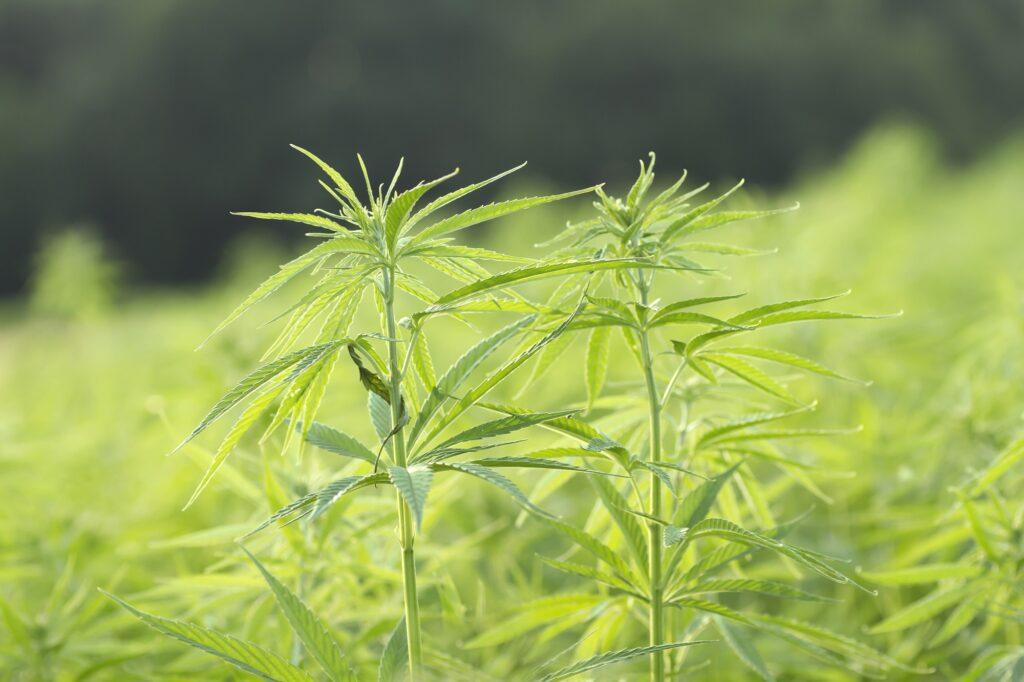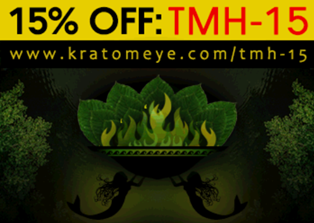As the market for hemp-derived THC products like delta-8 and THC-O has surged, many states have moved to ban them entirely due.

Hemp plants (photo credit: Heather Ainsworth for The Wall Street Journal).
The list below outlines every U.S. state that has enacted a full ban on these intoxicating hemp compounds as of 2025.
Alaska
Alaska classifies all tetrahydrocannabinols (THC) and their isomers as controlled substances under Schedule IIIA, which effectively bans any hemp-derived THC products (including delta-8 and delta-10) in the state. Despite Alaska’s legalized marijuana program, unregulated hemp THC variants are treated as illegal controlled substances under state law, closing the loophole for delta-8 and similar compounds that was established under the federal 2018 farm bill.
Arizona
Arizona law does not allow the sale of hemp-derived THC intoxicants. State statutes define “cannabis” to include every “compound, salt, derivative… of tetrahydrocannabinol,” and Arizona’s controlled substance schedules list all tetrahydrocannabinols (except the specific synthetic isomer of delta-9 THC) as prohibited substances. In practice, this means delta-8, delta-10, and other hemp-derived THC analogs are treated as illegal unless sold under the state’s regulated marijuana dispensary system.
Arkansas
Arkansas has an outright ban on hemp-derived THC products. In 2023, the state enacted Act 629, which amended Arkansas’ controlled substances law to list delta-8, delta-9, and delta-10 THC in Schedule VI alongside marijuana. This law prohibits the growth, processing, sale, transfer, or possession of any products containing these THC isomers, thereby banning delta-8 and similar hemp-derived THC compounds entirely in Arkansas.
California
California regulators have banned all intoxicating hemp-derived THC products. In late 2024, emergency regulations were adopted to forbid the sale of any hemp product containing detectable amounts of intoxicating cannabinoids (e.g. delta-8, THC-O, HHC) outside of the licensed cannabis market. Although California permits cannabis sold through state-licensed dispensaries, hemp-derived THC items cannot be sold in general retail; this effectively amounts to a full ban on delta-8, delta-10, and similar products in the state’s unlicensed market.
Colorado
Colorado has completely prohibited hemp-derived THC isomers by treating them as illegal substances. Colorado’s Uniform Controlled Substances Act defines “tetrahydrocannabinols” to include any synthetic equivalents or isomers of THC, and in 2021 the Colorado Department of Public Health explicitly declared that “chemically modifying or converting” hemp cannabinoids (like CBD) into THC isomers is non-compliant with state hemp law. In effect, products such as delta-8 or delta-10 THC that are synthesized from hemp are banned in Colorado, outside of the state’s regulated marijuana system.
Delaware
Delaware prohibits all hemp-derived THC products by law. Under Delaware’s Uniform Controlled Substances Act, any product containing “any quantity of… tetrahydrocannabinols” that is not an FDA-approved pharmaceutical is deemed illegal. This broad definition means delta-8, delta-10, THC-O, HHC, and all other THC variants are considered Schedule I controlled substances in Delaware, resulting in an outright ban on their sale or possession.
Hawaii
Hawaii currently bans the sale of all hemp-derived THC intoxicants. In 2022, state health regulators adopted rules prohibiting any hemp-derived products meant for inhalation or ingestion – which covers the typical forms of delta-8 THC, delta-10 THC, and similar compounds. Essentially, edible and smokable hemp products are not legal in Hawaii, meaning delta-8 gummies, vapes, THC-O acetate, HHC, and other hemp THC items cannot be sold or distributed in the state.
Idaho
Idaho has one of the strictest bans on hemp THC derivatives. Idaho state code legalized hemp with a delta-9 THC content under 0.3% but explicitly prohibited “all tetrahydrocannabinols, their salts, isomers and salts of isomers” that are not naturally present under the 0.3% limit. In other words, any amount of delta-8, delta-10, THC-O, or other THC analog derived from hemp is illegal in Idaho. The only exception is for FDA-approved medications, meaning Idaho effectively bans all hemp-derived THC products (even trace THC in CBD products is treated cautiously).
Kansas
Kansas imposes a de facto ban on all hemp-derived THC products. A 2021 opinion by the Kansas Attorney General confirmed that delta-8 THC is considered a Schedule I controlled substance in Kansas unless it is in a hemp product with no more than 0.3% total THC (which practically excludes any psychoactive product). Additionally, Kansas law prohibits any hemp product intended for human consumption that contains “any ingredient derived from hemp” and is not explicitly allowed under the state’s food and drug act. Taken together, these rules mean that delta-8, delta-10, and similar hemp-derived THC items cannot be legally sold or possessed in Kansas, aside from non-intoxicating CBD products with zero THC.
Massachusetts
Massachusetts has fully banned hemp-derived THC products like delta-8. In 2021, the Massachusetts Department of Agricultural Resources (MDAR) issued guidance stating it “has prohibited the sale and manufacture of any hemp-derived delta-8 products” in the state. Massachusetts regulators consider delta-8 (and by extension other hemp-derived THC analogs such as delta-10 or THC-O) to fall under the state’s controlled substance laws unless produced and sold within the licensed cannabis market. Consequently, no delta-8 THC or similar hemp products can be legally sold outside of Massachusetts’ regulated marijuana dispensaries.
Mississippi
Mississippi outlaws all forms of THC derived from hemp. The state’s controlled substance statutes treat all “isomers, derivatives, and synthetic substances” of tetrahydrocannabinol as Schedule I drugs (with narrow exceptions for specific FDA-approved synthetics). This means delta-8 THC, delta-10 THC, THC-O, HHC, and other hemp-derived THC analogs are illegal in Mississippi. Notably, Mississippi even specifies that cannabis extracts must maintain a 20:1 CBD:THC ratio and under 2.5 mg THC per mL to be permissible, underscoring that any meaningful amount of THC in a product is considered unlawful.
Montana
Montana has an outright ban on hemp-derived THC compounds via its controlled substances law. Montana Code Annotated classifies “all salts, isomers, and derivatives” of tetrahydrocannabinol as Schedule I dangerous drugs. The statute specifically lists numerous THC isomers (including delta-1, delta-3, delta-4, delta-6, and delta-9 configurations) as prohibited. As a result, any hemp-derived THC product – whether delta-8, delta-10, THCa, etc. – is considered an illegal substance in Montana, outside of the state’s tightly regulated marijuana program.
Nevada
Nevada law bans all synthetic and hemp-derived THC intoxicants. In 2021, Nevada updated its statutes to clarify that “THC” is defined to include delta-8-THC, delta-7-THC, delta-10-THC, and any isomer of THC. The law also prohibits any “synthetic cannabinoid” – defined as any cannabinoid produced artificially (not directly from the cannabis plant) – from being produced or sold in the state. Therefore, hemp-derived delta-8, delta-10, THC-O, HHC, and similar products are illegal in Nevada, as they fall under the ban on synthetic cannabinoids and the broad THC definition.
New York
New York has completely banned hemp-derived THC isomers like delta-8 and delta-10. The state’s cannabinoid hemp regulations explicitly prohibit hemp processors from using “Δ8-tetrahydrocannabinol or Δ10-tetrahydrocannabinol created through isomerization” in any cannabinoid hemp product. In short, New York disallows the manufacture and sale of delta-8 or delta-10 made from hemp. Only licensed marijuana dispensaries could theoretically sell such cannabinoids, but as of now New York’s legal cannabis market does not include delta-8 products, making all retail delta-8/10 THC products effectively banned statewide.
North Dakota
North Dakota currently bans all intoxicating hemp-derived THC products. In April 2021 North Dakota enacted a law which classified hemp-derived delta-8 THC as a Schedule I controlled substance alongside delta-9 THC. This law prohibits the manufacture, sale, possession, and distribution of delta-8 THC obtained from hemp. North Dakota’s ban is comprehensive – delta-8 and any similar hemp-derived THC (unless federally approved in a medication) is illegal to sell or possess, effectively eliminating delta-10, THC-O, and other analogs as well.
Oregon
Oregon has moved to eliminate unregulated sales of hemp-derived THC products. Beginning July 1, 2022, Oregon law forbids the sale of any product containing “artificially derived cannabinoids” (such as delta-8 THC synthesized from CBD) outside of the state’s licensed marijuana system. The state also set strict potency limits (e.g. 2 mg THC per serving in edibles) for general retail hemp products. In effect, hemp-derived delta-8, delta-10, HHC, THC-O, and similar intoxicating products cannot be sold to Oregon consumers except through licensed cannabis dispensaries, making them virtually banned from the open market.
Rhode Island
Rhode Island treats all forms of THC as illegal unless under the medical marijuana program. The state’s Uniform Controlled Substances Act defines “marijuana” to include not just the cannabis plant but “every compound, manufacture, salt, derivative, mixture, or preparation” of the plant. This means that all tetrahydrocannabinols – regardless of source or isomer – are considered marijuana and Schedule I substances under state law. As a result, hemp-derived THC products like delta-8, delta-10, or THC-O are banned in Rhode Island, since they are unregulated THC compounds falling under the broad marijuana definition.
South Dakota
South Dakota has outright banned intoxicating hemp derivatives. In 2024, South Dakota passed legislation that prohibits the conversion of hemp CBD into THC isomers like delta-8 or delta-10 and explicitly bans specific synthetic cannabinoids including THC-O acetate, HHC, and THCP. This new law makes it illegal to produce or sell any hemp-derived product that contains an intoxicating THC analog. In practical terms, all hemp-derived THC products – delta-8, delta-10, THC-O, HHC, etc. – are now banned in South Dakota.
Utah
Utah bans all hemp-derived THC analogs by classifying them as controlled substances. Utah’s Controlled Substances Act places “tetrahydrocannabinols and their synthetic equivalents, derivatives, and isomers” on Schedule I (with no distinction for source). The law specifies that any cannabinoid with the structure or pharmacological activity of THC is illegal unless permitted in the limited medical cannabis program. Therefore, hemp-derived delta-8 THC, delta-10 THC, THC-O, HHC, and related compounds are all illegal in Utah, as they fall under the blanket ban on THC isomers and synthetics.
Vermont
Vermont has a strict ban on hemp-derived THC products such as delta-8. In April 2021, Vermont’s Agency of Agriculture issued a directive declaring the manufacture, possession, or sale of delta-8-THC to be unlawful under state law. The state considers delta-8 a “synthetic cannabinoid” since it is typically produced by chemically altering CBD, and Vermont law already bans synthetic cannabinoids in hemp products. As a result, any hemp-derived intoxicating THC compounds (delta-8, delta-10, THC-O, etc.) are prohibited in Vermont, and enforcement actions have been taken to stop their sale.
Washington
Washington State has completely banned delta-8 THC and similar hemp-derived cannabinoids. The Washington State Liquor and Cannabis Board confirmed in 2021 that delta-8 THC is considered a Schedule I controlled substance under Washington’s Uniform Controlled Substances Act. This is because producing delta-8 from hemp involves a chemical synthesis that is not allowed under the state’s hemp program. Consequently, the production, distribution, or sale of hemp-derived delta-8, delta-10, or other THC analogs is illegal in Washington. (Notably, even though personal possession of cannabis is legal in Washington, that only applies to delta-9 THC from licensed sources; possession of delta-8 products remains unlawful.)
West Virginia
West Virginia has an outright ban on delta-8 THC and related hemp cannabinoids. In 2023, West Virginia enacted a law which added delta-8-THC, delta-10-THC, and other synthetic THC “equivalents” to the state’s Schedule I controlled substances list. This scheduling means that outside of the state’s medical cannabis program, compounds like delta-8 or delta-10 are treated the same as illegal substances such as delta-9 THC (for non-patients). In short, all hemp-derived THC products (including HHC, THC-O, etc.) are banned in West Virginia, and retailers have been warned against selling them.
Wyoming
Wyoming law bans all synthetic hemp cannabinoids outright. A new statute effective July 1, 2024 prohibits “adding a synthetic substance to hemp or hemp products,” defining a synthetic substance to include any synthetic THC or cannabinoid. This law was aimed at products like delta-8 cartridges or HHC gummies that result from chemical alteration of hemp extracts. The upshot is that hemp-derived THC analogs such as delta-8, delta-10, THC-O, and HHC are illegal in Wyoming, since any such lab-made cannabinoid in a hemp product violates the state’s prohibition on synthetic additives.







